There is a lot of misinformation and misconceptions with rust proofing / under coating/ rust prevention; for which I hope to provide some clarity and direction.
First, remember that rust is like an iceberg, you only see 10% of it. Moisture normally gets trapped for the longest duration of time in the places that you can not see (and have little ventilation).
Second, in many cases, rust starts from the inside and works its way out. This is also why when you go to fix rust by trying to grind away to fresh metal you end up chasing it until you have perforated the metal.
Rust proofing is always worth doing, but only if you select the proper rust proofing methods.
Cosmoline:
Most German and luxury automakers like BMW, Mercedes and Porsche rust proof their cars from the factory. This is to prevent rusting during storage and more importantly to aid against rust that may develop from sea water, rail dust, and road salt during shipping.
What they use is a product called cosmoline. It is a rust inhibitor that adheres to the military specification MIL-C-11796C Class 3. It comes in either of two forms, the first is in a greasy goopy consistency and the more common consistency that dries to a waxy like finish.
It is yellow in color and if you have ever looked under the hood or in the nooks and crannies of your E30 or other classic BMW, you most likely have spotted some of it.
To this day BMW continues to use this process for all of their new cars destined for the VDC (vehicle delivery center). Most countries/regions have VDC’s or the work is handed off to the local dealership before delivery. The job of the VDC is to inspect, clean and if needed repair your newly purchases vehicle before delivery.
One of those important steps is to remove the cosmopolitan from the outer body.
Back 30 years ago, the job was primarily handled by your delivering dealership and thus the quality of cosmoline removal varied heavily.
For example the below E30’s had nearly none of the cosmoline removed from the underbody, and only the outer body:
Prior to removal your BMW looks like this:
More about the VDC can be found here:
http://www.e90post.com/vpc/index.asp.htm
The process of removal comprises of using heated/steam pressure washers to liquify the cosmoline alongside general cleaning and detailing.
Cosmoline is so effective in preventing rust that it was used as the primary rust inhibitor for USSR arms in long term storage. The USSR kept stocks of arms near most medium-large cities in case of war, and did so by storing them for decades in wet, leaky, silo’s. If you have ever bought an old USSR rifle, you will know what I am talking about. The cosmoline completely coats the rifle which was produced and stored since the ~1940’s but still looks brand new.
Other then buying the product yourself, there are no places that I know of that do this type of rust proofing in a standardized way for regular consumers. Its rather a shame because it is by far the most effective form of rust proofing.
The only place that I know of that does anything similar is ziebart’s who offers a waxy-yellow-like coating that has resemblance to cosmoline; but in my experience is not as effective or robust as actual cosmoline used by the automakers.
There are a couple companies that sell the product in spray can / pail form under the cosmoline name. There is also Amsoil Heavy Duty Metal Protector that has the look and feel of cosmoline when it dries.
Unlike the below method which does not dry and continues to move, cosmoline begins drying to a semi solid self healing waxy finish within hours, so it is absolutely critical that the person applying the product gets into all nooks and crannies that water can flow.
Oil based rust proofing:
By far the most popular type of rust proofing found in the rust belt. The product is relatively inexpensive for the applicator (good margins), and application is rather forgiving, so you can run a chain like Krown or Rust Check and have any guy or gal applying it.
This method uses oil to displace water, and as such never dries. One major benefit and major selling point you will hear time and again is that the product will move and flow into the same nooks and crannies that water flows into. Although true, it is also a red herring (defined as something, especially a clue, that is or is intended to be misleading or distracting) in that its only important when you have an applicator who is incompetent or does not spend enough time to get into all of the nooks and crannies of your car.
On one hand, if they could get everywhere, a product like cosmoline is far superior. On the other hand, a place like Krown or Rust check knows that the average user will not pay for hours worth of application. Oil based rust proofing allows them to apply within an hour and to send you on your way, while still retaining a reasonable level of rust proofing.
This is precisely why you will notice that most oil based rust proofing operations drill holes all around your car:
They will tell you that they are drilling the holes to be able to access the inside of your body panels to be able to provide additional oil coverage.
Drilling holes will allow quicker access but again its a red herring (defined as something, especially a clue, that is or is intended to be misleading or distracting) because not only do the holes they drill rust (ironic), but theoretically if they spent enough time they could remove plastic trim and get the same access to the natural access points.
Not only that, but most semi-modern cars have access holes provided from the factory. They are sometimes hard to locate, especially if you work on all kinds of cars all day (keeping track of all factory access locations is near impossible), so the applicator will normally favor drilling their own holes for the sake of expediency.
Permanent rust proofing:
DO NOT DO THIS TYPE OF RUST PROOFING/UNDERCOATING!
This is by far the worst type of rust proofing, and ironically normally the most expensive. It dries to a hard finish (think bed liner), and tries to create a hard barrier between the metal and moisture.
Most new car dealers try to sell this type of rust proofing as an added service.
They push the additional cost over oil based rust proofing by telling you it is permanent or that it lasts a life time or that it doesn’t need to be reapplied over time.
The problem with this rust proofing is two fold:
1. Just like with oil rust proofing, the applicator can not spend days on apply the coating on your car, so inevitably you have edges around the coating.
2. Like any other hard coating, you will get fractures in the coating (ice, road debris, etc).
Because of 1 and 2, water will work its way under the coating and will get trapped in between your car body and the coating.
This will accelerate rusting, and even worse, by the time you notice and peel back the rust proofing, it will likely have rotted out the metal underneath.
Not using rust proofing / keeping a car clean and dry:
You will hear about people referencing the rust warranties on new cars, and noting that coatings on cars are better now.
The above is incorrect because rust warranties are normally perforation warranties; that means the rust has to get to the point that a hole forms.
Regarding coatings being better now; this is also untrue. Most cars manufactured 40+ years ago used far harsher chemicals in the manufacturing process. Many automakers now use water based paints and bondo-esque in their body finishings. If you go back to the 60’s for example, automakers used oil based paints and lead as a body filler.
This is exactly why when you go to junk yard and see a 60’s mercedes it is less rusty then the year 2001 right beside it.
Rust is not a conspiracy, its a byproduct of what happens when metal is oxidized. Don’t let anyone convince you that somehow keeping your car clean and dry is an acceptable form of rust prevention.
My conclusion:
It is very hard to apply cosmoline to an already oiled finish, but not visa versa. If you have a car that has not yet been rust proofed, consider using cosmoline.
At minimum I recommend applying cosmoline to the best of your ability or finding an applicator who will apply it for you. Then re-applying yearly with more cosmoline or switching to oil based application.
If you have had oil based rust proofing applied in previous years, its not impossible to apply cosmoline, it will just be a matter of pressure washing the old stuff off.

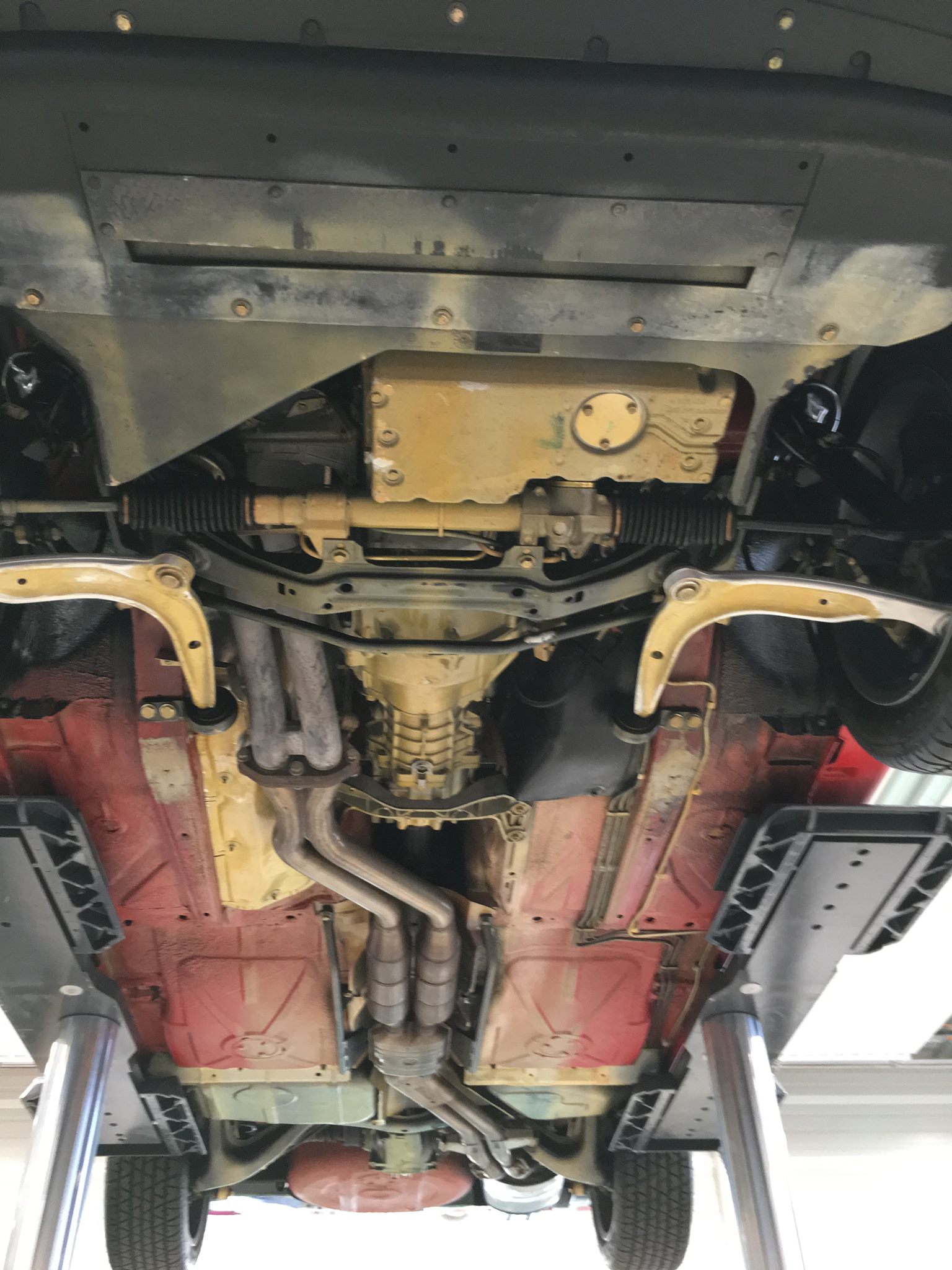

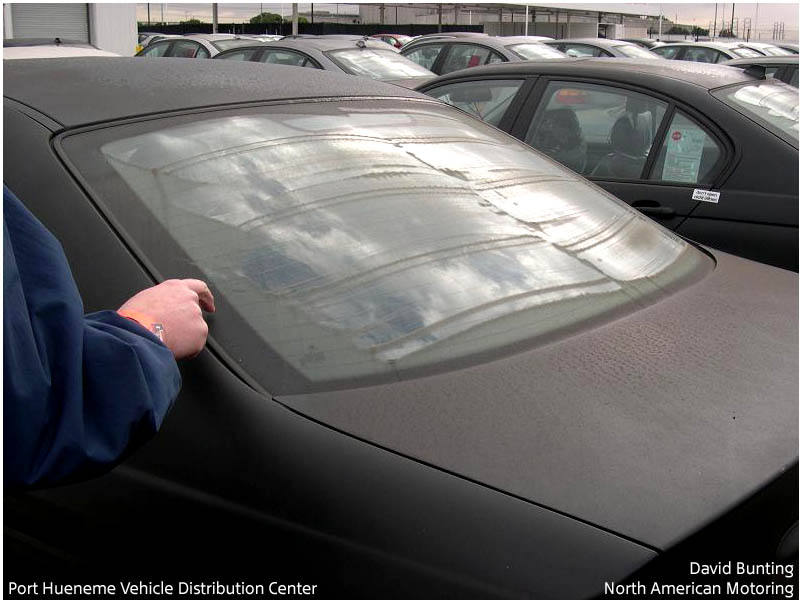
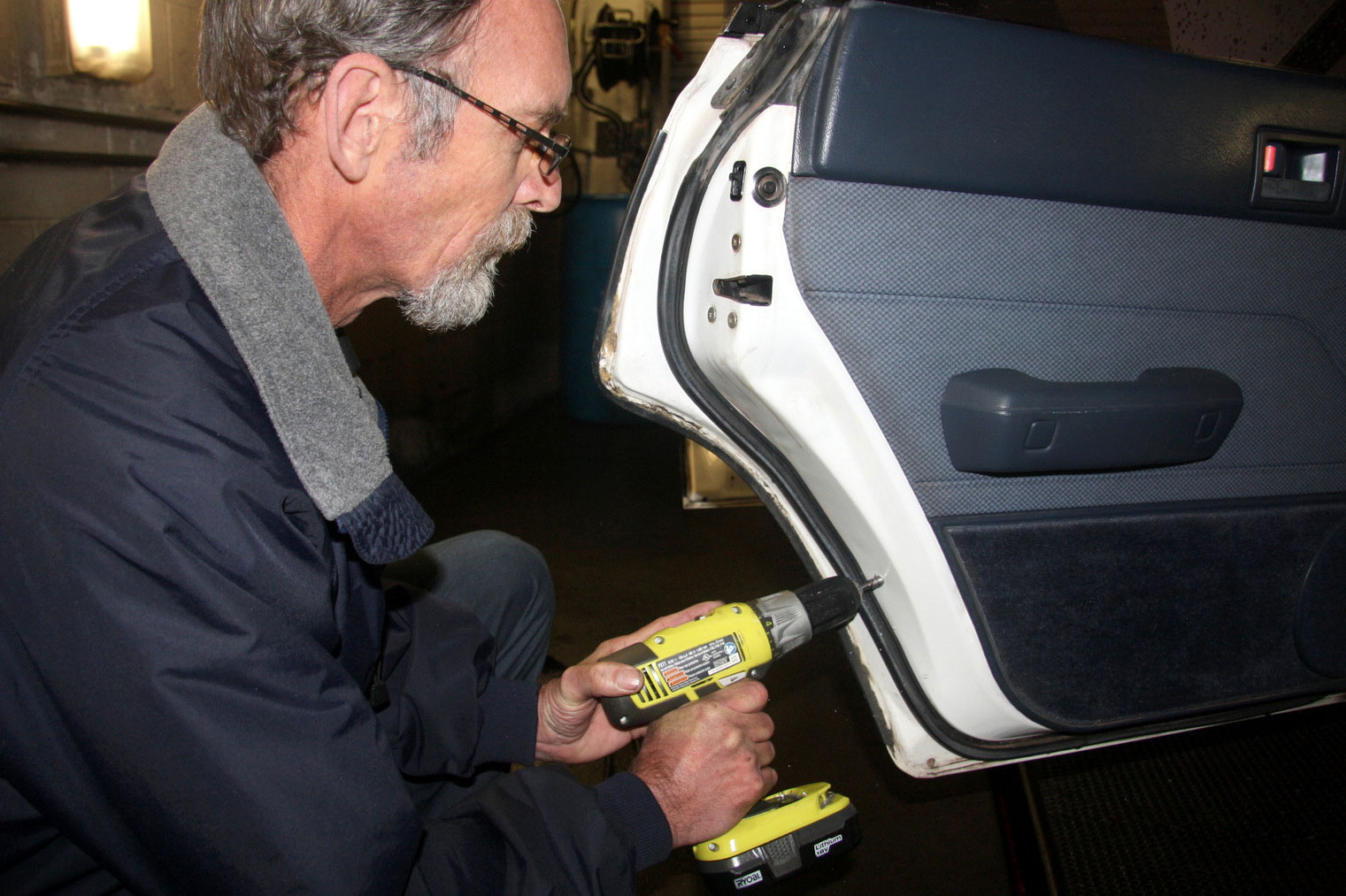
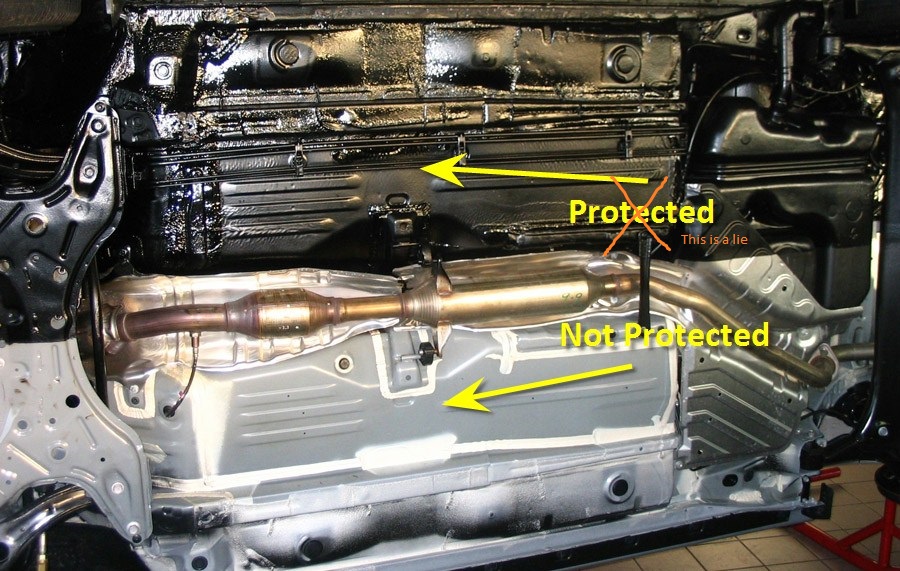
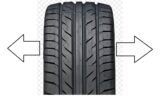

I just read the article on rust proofing as it came up during a search I had performed on some products we are using.
Well, you can add us to the list of shops that apply solvent based paraffin wax!
I dry ice clean cars and began to notice how amazing Porsches looked after DECADES because of what they put on cars. You are absolutely right; the product they use is the best on the market.
The issue most people have had with waxes like this is the difficulty or mess involved in removing it, for whatever reason the owner decides. Dry ice blasting gently removes all residue of the wax on complicated geometry and then leaves a surface that a wax rust inhibitor can adhere to for years…and years.
We’ve been telling our story to local groups for a couple of years now but I would love to speak with someone here about what we do! We are a Bimmer home, btw; I have an E53 Dinan S1 4.8is and the oldest step son has an E30 S52 swap.
Regards,
Ted
780-490-6900